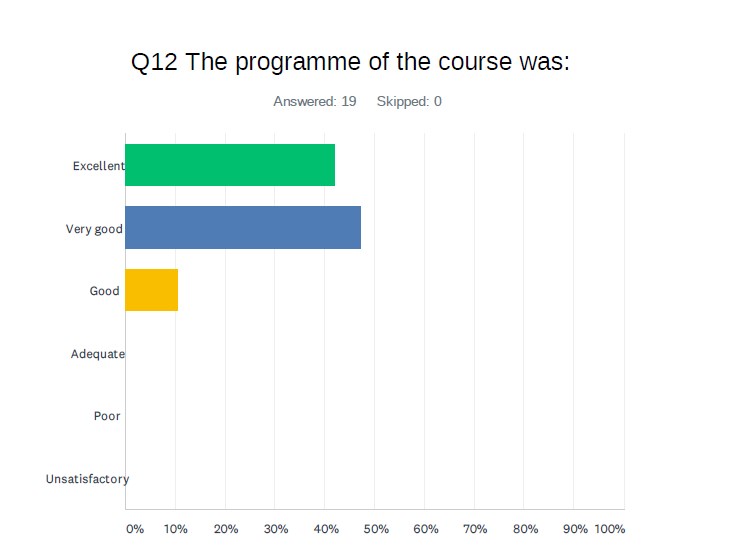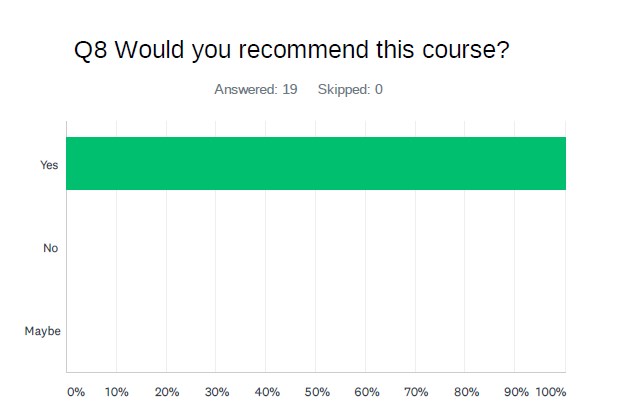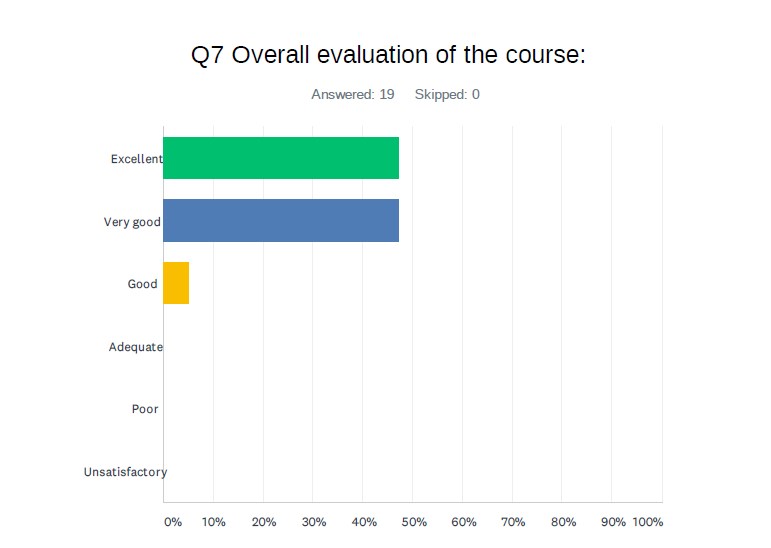From an online interview to running my first virtual course

We asked Iva Gavran, who recently joined the team as a Course and Conference Officer, to give us her newcomer’s insights about the very first virtual course she organised (EMBO Practical Course: Drosophila Genetics and Genomics, 11 – 15 January 2021), held in the EMBL virtual learning platform – eCampus.
It was December 2020 and after a 5-day quarantine and a PCR test I had started working at EMBL. It was just one month before the EMBO Practical Course: Drosophila Genetics and Genomic was scheduled to take place. A virtual course, of course.
In fact, my job interview at EMBL was held virtually as well and I had seen the EMBL ATC building and the city itself only in pictures prior to relocating to Heidelberg (and oh, both are stunning).
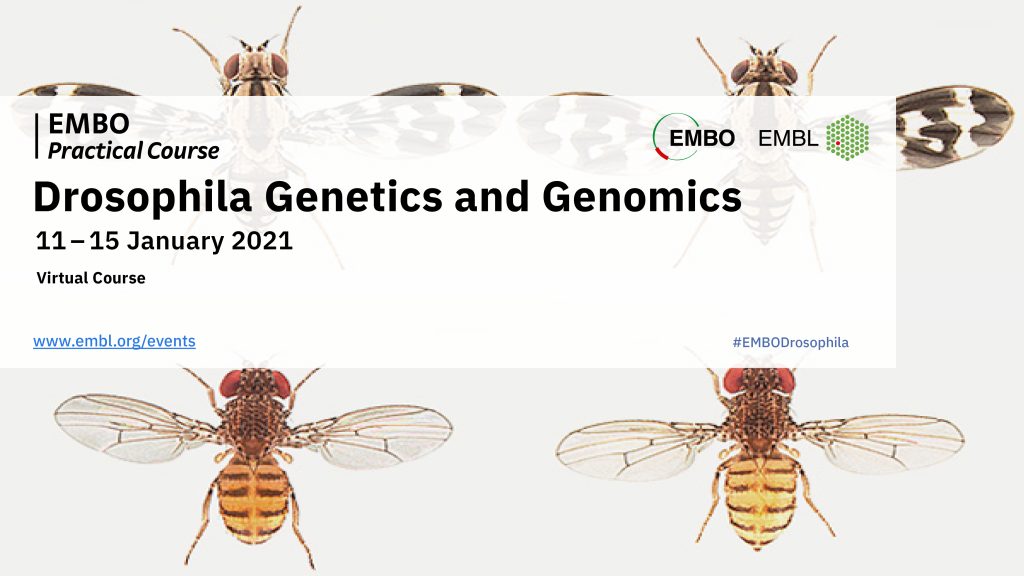
A lot of things for the course were pretty much arranged by then, but I was still baffled about how one could organise a virtual practical course. The answer may well lie in the EMBL Advanced Training Centre building’s architecture that resembles the DNA’s double helix and reminds us that adaptation is the key. We have fully adapted the face-to-face training’s structure and interaction to a new, online format.
Virtual platform
What really helps is that there is a whole learning platform dedicated to our courses, called eCampus. A clean slate at first, it was soon populated with all kinds of learning materials, videos, articles and other input sent by the speakers and trainers.
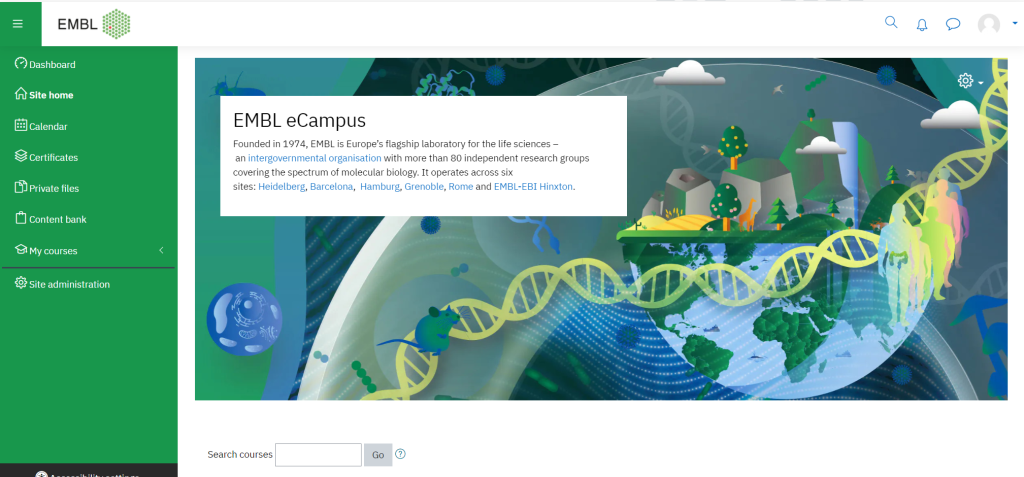
Course materials and programme
I would say there are three main pillars of eCampus: the pre-course materials, the interaction options and the daily programme. The pre-course materials are a proper little treasure trove of knowledge with pre-recorded videos, quizzes, articles and assignments. If you have any questions, just go straight to the Forum and ask away, or chat with another participant or trainer. The programme is always up-to-date with all the links you need and it also has a nice feature where you can adapt it to your time zone. If a live session has some pre-course materials that need to be watched or read, it will be hyperlinked in the programme or the material will be added below, which is pretty cool and very convenient.
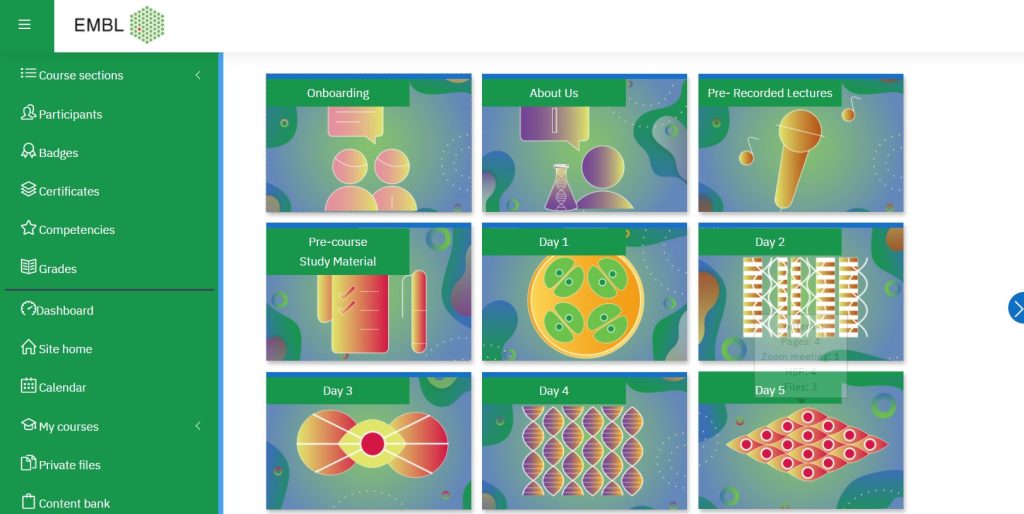
Networking
Networking is a crucial part of every event, whether it’s a conference or a course, but it is hard to replicate in a virtual environment. I remember how it was for me to virtually meet my colleagues, and trust me, it’s definitely odd, but somehow at the same time it also felt normal. After all, we share the same work experience and it’s the same when attending a course. Well, not exactly the same if you are a work-from-home parent, but EMBL has amazing childcare grants to help you with that.
The Drosophila course started off on a Monday with an ice breaker event, where all participants shared a few slides to introduce themselves, their hobbies and their career path. It was a full display of lockdown life with cooking, baking and Netflix all over the slides (mine included). There were also networking activities like speed networking, student presentations, a discussion panel and a quiz which fostered interactions between participants and trainers and helped create a really nice group dynamic.
Course modules and learning process
The course was designed in a way that required some pre-course work. The platform contained a lot of pre-course materials, papers and videos which the participants needed to go through before attending the full 5-day course with about 4-5 course hours per day.
I remember some participants were a bit unsure if they needed to watch them before the course. The idea (and I really liked this) was that participants watch the pre-recorded videos in advance, so that when the speakers and trainers joined live during the course, participants could ask as many questions as possible and thus learned even more from the discussion. This was actually the true benefit of the virtual course – a more thorough discussion and full understanding of the topic compared to the standard format of live lectures followed by 5 min of Q&As. And judging by the participants’ feedback, this format was quite a success.
Some of the interactive sessions of the course were designed in a similar way. For example, participants were assigned tasks that they had to complete before the course. During the course, they received feedback, could ask questions and go over the rest of the tasks with the trainers. To let this all sink in properly and to give them a chance to reflect on what they had learned, participants were able to access all the materials and live recordings for two weeks after the course. As some pointed out, this was amazing for a virtual event and I agree completely.
A big shout out to #EMBODrosophila #EMBLEvents and the organizers and participants of the Drosophila Genetics and Genomics course for organizing an amazing and fun virtual workshop.Really enjoyed it!
— Ankita Chavan (@flyhi_ankita) January 15, 2021
For me, the best part of the Drosophila course was watching the lively interactions and discussions between participants and trainers, and especially among participants during their presentations of their current research. I found it inspiring and rewarding to see their curiosity and ideas. There it was, 20 people sitting in their homes in different parts of the world, talking about one tiny fly with top experts in the field. How amazing is that!
Events Iva is organising or co-organising:
EMBL Course: Advanced Fluorescence Imaging Techniques, 23 – 27 August 2021
EMBL Course: Gene Expression at Spatial Resolution, 30 Aug – 2 Sep 2021.
EMBO | EMBL Symposium: Seeing is Believing – Imaging the Molecular Processes of Life, 5 – 8 Oct 2021.
EMBL Science and Society Conference: One Health: Integrating Human, Animal and Environmental Health, 3 Dec 2021.
